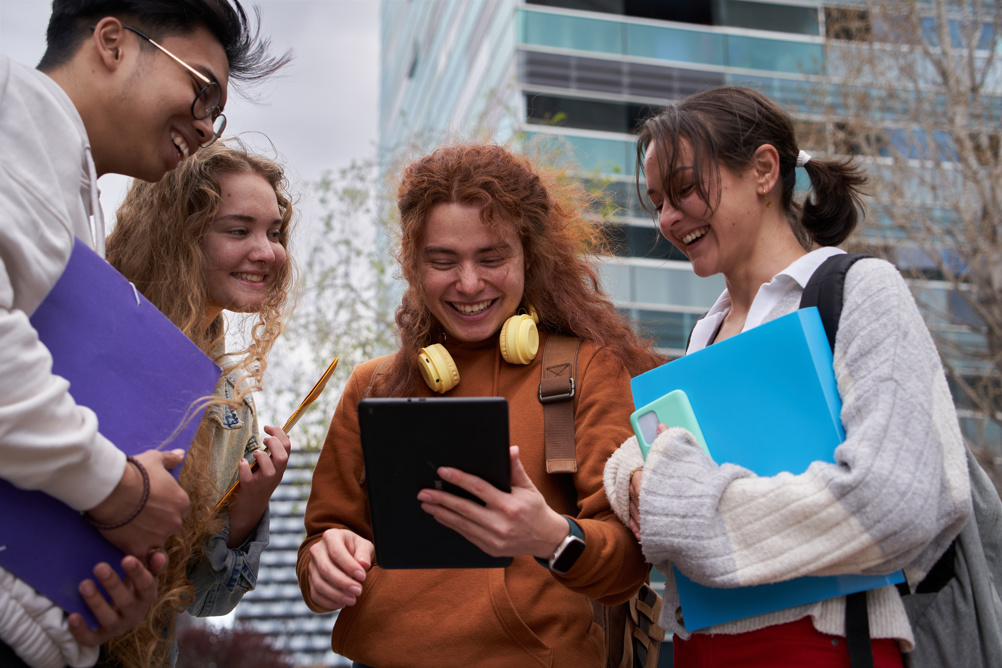
These programmes are typically offered in addition to regular academic lessons and allow space for the development of interests and hobbies.
Enrichment programmes come in all shapes and sizes and switch up the traditional teacher-student style of teaching. Some examples include academic enrichment programmes which focus on specialised topics not covered by the standard curriculum, for example, how to manage money, or on the other hand, arts and cultural enrichment programmes that foster creativity and appreciation of the arts.
-
How I Got Here: Andrew Poole, assistant head teacher and Senco
-
Careers Advice and Guidance Special Report
This is supported by Ofsted, who write that ‘enrichment activities play a crucial part in enhancing the experience of vulnerable students and building their capacity as learners’, continuing that sessions ‘are often built around students’ specific needs and aspirations’. Cemented by the fact pupils can steer the direction of these sessions rather than be forced to follow a set curriculum, this greater responsibility increases engagement in the classroom.
Many enrichment programmes specialise in promoting career opportunities to pupils. This eases anxiety around life after school and gives students the space to discover what interests and motivates them.
Utilising enrichment sessions for careers advice reduces the likelihood of students becoming not in education, employment or training (NEET). Instead, pupils are given confidence to aspire to high-status professions as they become motivated to pursue their interests.
In CYP Now’s most recent Careers Advice and Guidance Special Report, Heather Sandy, chair of the ADCS Education Policy Committee, stressed the importance of high-quality careers advice.
Sandy acknowledged that students can feel “overwhelmed when making early decisions about which direction to take”, and referring to a recent paper published by ADCS, noted that an “inclusive education system prepares children and young people for the future to become active citizens”.
She continued: “Learners should be encouraged to use their creative skills, be intellectually curious and socially and morally responsible by taking an active, positive role in their local community. This requires a curriculum that empowers all students to develop into confident adults by appealing to all types of learners from every background.”
This shows how careers advice can be woven into enrichment programmes at all schools, including special schools.
As Sandy said, “all types of learners’ should be empowered ‘to develop into confident adults” no matter their background, and enrichment sessions that promote intellectual curiosity, creativity and responsibility are the backbone of this empowerment.
To showcase this, last month I was invited by Silverways School to be a guest speaker at their media club. This club explores all types of media activities, including filmmaking, reporting, podcasting, and interviewing.
As a reporter, I shared what my day-to-day job looks like, why I was interested in journalism and the skills needed to excel in the profession. To my delight, my research of what a successful enrichment session should look like lived up to its expectations. The pupils had control over the session and steered the direction of my talk. I was asked how I spot fake news, how I prepare for interviews, how many articles I write daily, the types of events I attend and the perks of my job.
Many were interested in pursuing a career in the media – one student wanted to be a filmmaker – and the school organised many activities for students to enhance their interests, such as providing recording equipment to make short films, record podcasts and interview students and staff.
To gauge the importance of enrichment sessions - specifically in special schools - I spoke to the headteacher of Silverways, Jeanette Maynard, who shared how the school is expanding pupil’s skillset:
Why did Silverways set up an enrichment programme?
We have a significant number of pupils with a flair for art and illustration, film-making and online streaming. Our enrichment clubs are designed to broaden the student’s horizons to access experiences outside of the confines to the National Curriculum that enrich their school experience, build character and build cultural capital. In many instances there are quite obvious links to our careers agenda; the Media Club is one example of this.
How do media enrichment programmes in special schools differ from media enrichment programmes in mainstream schools?
Our enrichment clubs are inspired by the children's interests, not just what the adults 'think' they will benefit from. I don't know that we use any techniques specifically different to mainstream schools but calm, trusting relationships are central to all our successful engagements with our students. Staff facilitating the Media Club know the students individually, their likes and dislikes, inspirations and triggers and this knowledge guides the experiences they provide.
Why is it important to teach children with special educational needs and disabilities (SEND) about different career paths?
Too often limitations are placed on expectations of children with SEND and as a result their ambitions are capped. At Silverways we firmly believe that with quality opportunities, hard work and the right support our students should be able to access any career path that interests them. Our Enrichment Clubs, and Careers agenda aims to broaden their horizons and expand their dreams and aspirations to think beyond the confines society places upon them and gives them a taste of what they can achieve.
Why are enrichment programmes so beneficial for children within this setting?
Our enrichment clubs provide equal access to activities our students might not otherwise experience. In addition to media club our offer has included horse riding, Formula One (including a visit to Silverstone racetrack), animation, leather work and new age curling. We change the offer termly to maintain variety and provide access to all those interested. Students have access to all of these clubs at no expense to their parents and carers which ensures inclusion and cultural capital for children who might otherwise be denied access due to the expense of some activities.
For more information about careers and advice and guidance listen to the first episode of the new CYP Now Podcast.

